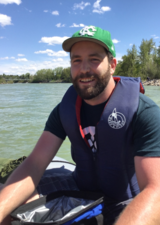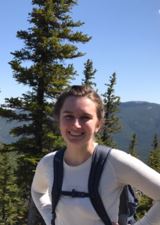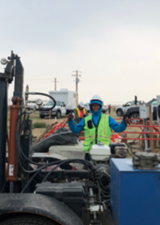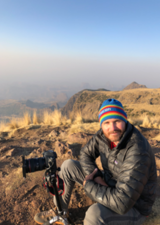Meet our researchers
Faculty

Dr. Rachel Lauer
Bridging the gap between geophysical observations and measurements (e.g. seismological, geodetic, temperature, pressure data) and the fundamental processes that govern the production and movement of subsurface fluids. My areas of expertise include developing meaningful predictive models of fluid flow, subduction zone hydrogeology, and more recently, using electrical resistivity to monitor gas migration in the subsurface.
Postdoctoral Researchers

Dr. Adedapo Awolayo
Students

Robert Perrin, PhD Student
Rob's research is focused primarily on developing numerical models of fluid flow and deformation in subduction zones, with the goal of understanding how these coupled processes impact the position of the plate boundary fault. Rob is currently developing models of fluid flow and poroelastic deformation at the Middle America Trench, adjacent to Costa Rica and Nicaragua, where the Cocos Plate is subducting beneath the Caribbean Plate.

Tom Wilson, PhD Candidate
In recent years the highest elevation springs in the Banff Hot Spring system have experienced late winter flow stoppages, threatening the habitat of the endangered snail, Physella johnsoni, and causing operational interruption to a swimming pool which is filled by the spring. To forecast future spring flow allowing assessment of these threats, Tom is building a three dimensional hydrological model of the hot spring system and applying future climate scenarios.

Shane Bossaer, MSc Student
Shane's MSc project is focused on investigating the interactions between groundwater and surface water at a group of two alkaline lakes located in the Cariboo Plateau, BC. Despite being very close in proximity these lakes have different water chemistries and different populations of microbes. This research project is multidisciplinary, incorporating aspects of hydrogeology, geophysics, and aqueous geochemistry.

Dylan Cunningham, MSc Student

Sarah Reid, MSc Student
Soap holes are groundwater discharge features located at the Earth surface. They have a thin, fragile crust that does not support much weight and watery mud that oozes up to the surface. Previous work has been done to image the subsurface beneath soap holes to create a conceptual model. Sarah will be testing the conceptual model of how soap holes form using soil mechanics and fluid flow modelling.

Haidar Putra, BSc Student
In 2011 Japan, an earthquake of magnitude 9.0 was generated by a large slip in the megathrust zone of the Japan Trench. Drilling expeditions discovered that the fault is highly enriched in smectite, a weak mineral known for its low frictional and mineral dehydration properties. Haidar’s research aims at investigating the role that smectite has in affecting the fluid pressures and shear stress along the plate boundary which subsequently lead to the 2011 Tohoku-Oki Earthquake.
Alumni

Mike Law, MSc 2021
An Investigation of the Geochemistry and Hydrogeology of the Queen Charlotte Fault

Suhaila Shatar, BSc-H 2020
A Soap Hole Analysis by Cone Penetration Test

Jason Abboud, MSc 2019
In situ free phase gas production in initially saturated sediment

Tim Cary, MSc 2019
Time-lapse Electrical Resistivity Imaging of Methane Gas Migration in a Shallow Confined Aquifer

Landon Woods, MSc 2019
A Conceptual Model for the Development and Persistence of Soap Holes (Unique Prairie Groundwater Discharge Features)

Daniel Sola, BSc-H 2019
Tracking methane leaks using ERT and deep learning
